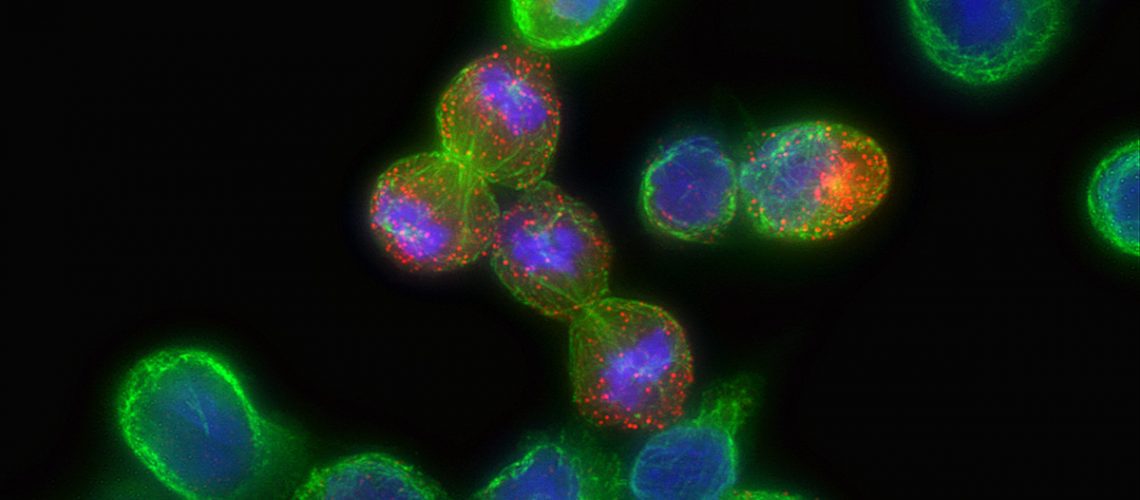It’s important to identify families at risk of developing hereditary cancers so its members can take effective measures for the early detection and prevention of tumors.
Research carried out under the Human Cancer Genetic Program is very much a patient-oriented affair and its units cooperate closely with the clinical community. Their aim is to determine how much of a genetic risk a given person may have of developing a certain type of cancer, or identify the environmental factors that may influence the process.
The Human Genetics Group explores the genetic basis of inherited cancers, with particular attention given to breast cancer. The Hereditary Endocrine Cancer Group under Mercedes Robledo is concerned with the genes involved in this type of tumor as well as the genetic markers that indicate how each patient is likely to respond to a course of medication. Both are engaged in the search for the genetic modifications that trigger greater susceptibility to cancer in individuals with sporadic, i.e., non-hereditary cancers.
The Molecular Genetics and Epidemiology Group has Núria Malats at the head of a team studying and analyzing the environmental and genetic factors that increase the odds of a patient developing pancreatic or bladder cancer.
Other units that provide technical support as well as research are working on Genotyping (Ana Gonzalez-Neira), or Molecular Cytogenetics and Genome Editing (Sandra Rodríguez-Perales).
In addition, the Human Cancer Genetics program is involved with the CNIO’s Familial Cancer Clinical Unit, a program coordinated by the Familial Cancer Consultancy operating out of Fuenlabrada Hospital in Madrid.
One of the programs more recent achievements involves the identification of new genes involved in the development of pheocromocitomas and paragangliomas. Both of these are rare neuroendocrine tumors with significant inheritance-related components.



